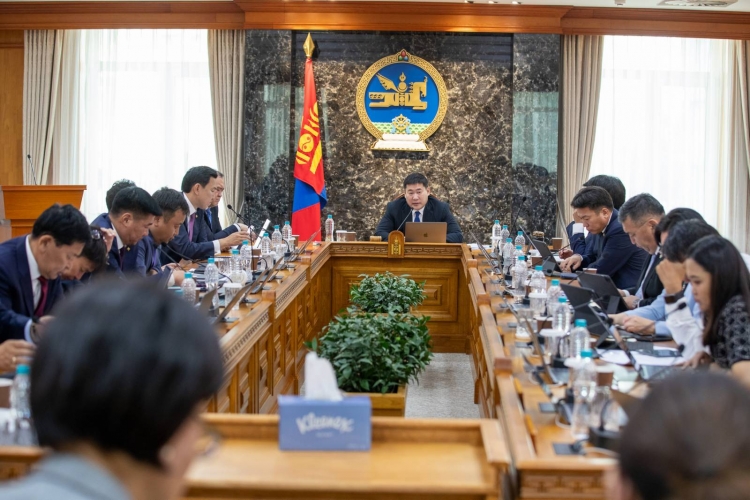On September 11, the Cabinet convened for its regular meeting, with key highlights from the session summarized as follows:
Government to Expedite Implementation of Mega Projects
The coalition government, formed following the 2024 parliamentary elections, has outlined 14 major infrastructure and development projects in its action plan. The Prime Minister of Mongolia has tasked cabinet members with accelerating the execution of these projects.
Each cabinet member has been assigned to implement between 3 to 9 measures, totaling 129 distinct actions. Additionally, they are required to inform the public about the significance and expected outcomes of these projects. The members are also directed to prepare a comprehensive report on the government’s activities, due by December 20, 2024.
Parents to Share the Cost of Kindergarten Meals
The Cabinet has decided to raise the cost of kindergarten meals by 1,000 MNT. As a result, the daily cost of meals will increase to 4,000 MNT for kindergartens operating 8 to 10 hours a day, and 5,100 MNT for 24-hour kindergartens. Parents or guardians will be responsible for covering 1,000 MNT of this amount.
This resolution will apply to over 135,000 children enrolled in 310 state-run kindergartens across Ulaanbaatar. For parents, this translates to an additional 22,000 MNT per month or 190,000 MNT annually. The government will continue to cover 75% of the total meal cost, while parents contribute the remaining 25%.
Furthermore, the government will fully subsidize meal costs for 50,440 children from vulnerable groups, including orphans, children with disabilities, and those from low-income families. This decision will take effect on October 1, 2024.
“Paperless Government” Initiative to Digitize Operations
At the Cabinet meeting, N. Uchral, Chief of the Cabinet Secretariat, presented the “Paperless Government” initiative, aimed at digitizing government operations to enhance efficiency and reduce costs.
Cabinet members, along with local governors and government institutions, have been instructed to facilitate the digital exchange of documents. In addition, N. Uchral and O. Altangerel, the Minister of Justice and Home Affairs, have been tasked with refining the legal framework to support digital information exchange and streamline government processes.
A study by the State Productivity Committee revealed that the average annual paperwork cost for a single ministry amounts to 44.1 million MNT, with the total cost for 15 ministries reaching 662.3 million MNT. Additionally, ministries collectively spend 574.2 million MNT annually on postal and communication services.
The shift to digital operations is expected to reduce these costs and accelerate the provision of government services to citizens.
“New Cooperative Movement” to Be Strengthened Nationwide
The Government of Mongolia has launched the “New Cooperative Movement” to support herding families, increase revenue from livestock, and boost the incomes of herders through the production of animal-derived raw materials and products.
A five-year action plan, titled “New Cooperative – Prosperous Herders,” has been approved, and the government has committed to providing preferential investment loans to cooperative members. In the past 3 months, these loans were provided by commercial banks, with the government subsidizing interest rates.
To date, loans amounting to 502.3 billion MNT have been distributed to 14,600 herders belonging to 4,400 cooperatives. Additionally, 1,570 herders have submitted projects worth 88.3 billion MNT, which are currently under review by banks.
Following the Cabinet’s discussion, relevant government members and provincial governors were instructed to intensify the “New Cooperative Movement” at the national level.



